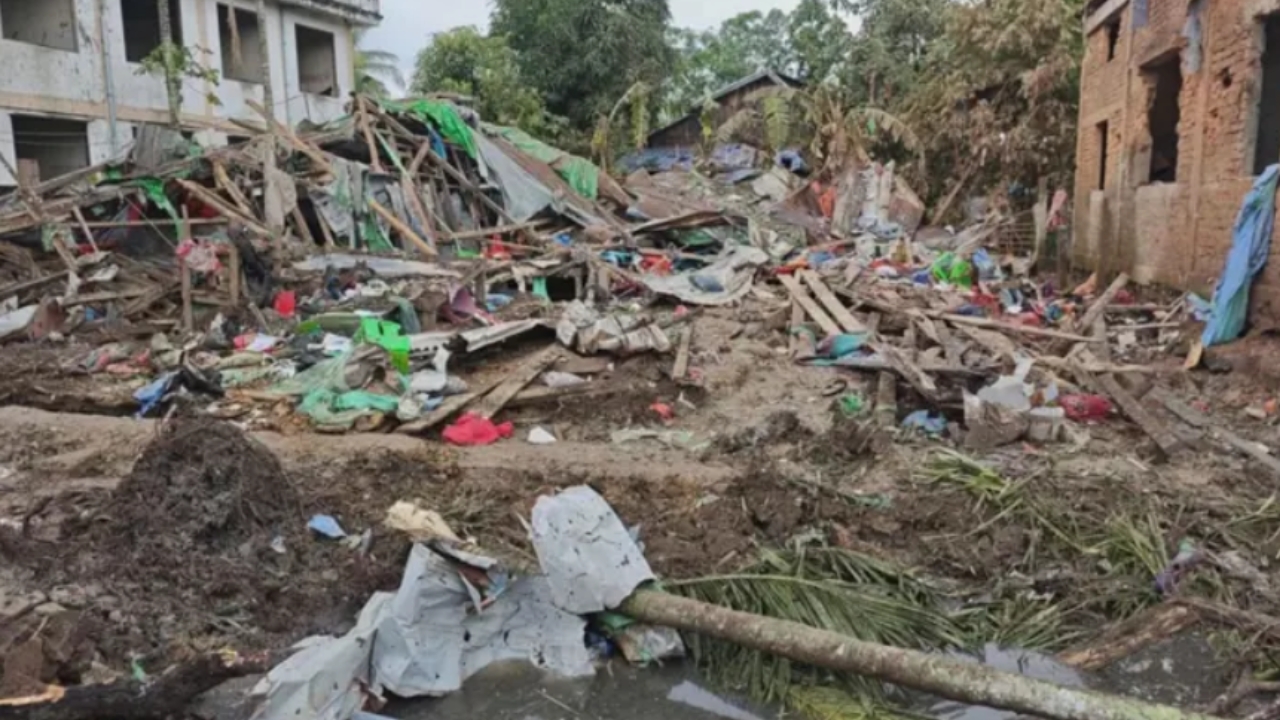
Luigi Mangione Appears in Court Over Killing of In
Luigi Mangione appears in court over murder of UnitedHealthcare CEO. Lawyers seek to dismiss state c

Photo:AP
The latest tragedy in Myanmar has shocked the world. At least 18 people, most of them schoolchildren, were killed in a military airstrike on schools in western Myanmar. This horrifying incident once again draws global attention to the human cost of Myanmar’s ongoing armed conflict. More than numbers or statistics, it is a story of innocent lives lost, families torn apart, and the destruction of a generation’s hope for safety and education.
Children Under Fire
Schools are meant to be safe places where children learn, grow, and dream of a better future. Yet, in Myanmar, classrooms have increasingly become battlefields. Reports indicate that the army launched an airstrike targeting at least two schools where children were attending lessons. Among the dead were young students, alongside teachers and villagers who had gathered in the area.
Local witnesses described harrowing scenes: collapsed buildings, shattered furniture, and families desperately searching through rubble for their loved ones. Parents who sent their children to school in the morning saw them return lifeless. A place of learning became a site of grief.
A Pattern of Attacks
This is not the first time Myanmar’s military has carried out such raids. Since the coup in 2021, when the generals seized power by overthrowing the elected government, the army has relied heavily on airstrikes and artillery to suppress resistance movements. Villages, healthcare centers, temples, and schools have all been targeted.
According to international human rights groups, these repeated attacks are not accidents but part of a larger campaign of intimidation and punishment against ethnic minorities and rebel strongholds. The victims, however, are most often civilians, and tragically, many of them are children.
Breach of International Law
The airstrike on the schools is not only shocking but also a violation of global standards of warfare. Both international humanitarian law and United Nations conventions are clear: schools and hospitals must never be attacked, and children must always be protected in conflict zones.
By deliberately targeting schools, Myanmar’s military has once again shown disregard for international law and the basic values of humanity. Such actions could amount to war crimes, yet accountability remains absent. With limited access for international agencies, evidence collection is challenging, and justice is slow.
The Impact on Families and Education
Beyond the immediate deaths, the bombing leaves deep scars on the community. Education in conflict areas of Myanmar has collapsed. Parents are increasingly afraid to send their children to schools that could be targeted any day. Teachers struggle to continue lessons amid fear and displacement.
Children who survive these attacks carry trauma for life. Instead of learning in classrooms, thousands today live in makeshift shelters, hiding in forests, or fleeing into neighboring countries. They lose not only their safety but their right to a future. A generation is growing up in fear, stripped of education and normal childhood.
Global Silence and Responsibility
The tragedy raises troubling questions. How many more children have to be killed before the world acts with urgency? The United Nations and humanitarian organizations often condemn such attacks, but words alone are not enough.
While sanctions have been placed on Myanmar’s generals, they remain largely shielded by powerful allies and the country’s isolation. Neighboring countries in Southeast Asia must face the ethical challenge of standing up to a regime whose actions threaten regional stability. The global community must ensure aid reaches Myanmar’s civilians and put greater pressure to stop attacks on schools and villages.
Voices of the Survivors
Local civil groups continue to share evidence of the destruction, risking their lives to tell the world the truth. Survivors demand attention, pleading for safe zones, humanitarian aid, and international monitoring. Their voices, however, often fade in the background of global crises elsewhere.
Yet, this airstrike is not just Myanmar’s problem. It is a human tragedy that reflects how far violence is allowed to reach when accountability fails. Crimes against children cannot be treated as routine acts of war.
The Way Forward
Protecting children should be the highest moral duty in any conflict. Myanmar’s leaders must be held responsible for violating international norms. The International Criminal Court and the United Nations must prioritize investigations into these attacks.
Equally, the people of Myanmar who continue to resist military rule need global solidarity. Civil society, journalists, and aid groups require support to document abuses and deliver humanitarian relief. Without this, tragedies like the killing of students in schools will keep repeating.